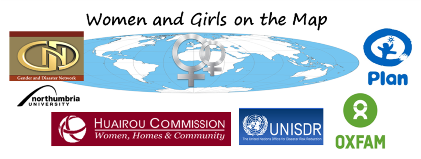Verified
100 Years of International Women's Day - Three women: climate, sustainability and patriarchy
01:18 Oct 11 2012 Geneva, Switzerland
Description
Margareta Wahlström“For me, there are several key opportunities for women at this time. One is about women making great progress to make sure they use their untapped potential and resources for strengthening the global sustainability,” says Margareta.
She is thinking about the lead and contribution women can make in converting to greener economies and ensuring there is a strategy for continued growth and at the same time keeping a focus on reducing poverty, through an approach that is sustainable and not uniquely linked to a resource base that can be depleted in the next 20 years.
But she says there must be a real commitment on the part of politicians, social planners and all sectoral policymakers, to take seriously the need to listen to the voice of ordinary women and men in communities, who have particular and insightful perspectives.
“I’m not saying that we move from government responsibility but that government without citizen input to support some of the tough choices and priorities to deal with current and future risks and sustainability issues, will fail. We need to take very seriously the need to obtain and make use of community knowledge. It is a foundation for change and for innovation”
A significant change in improving citizen consultation that she has seen working herself, is for officials to reduce the number of intermediaries “who claim to speak on behalf of communities” and to ensure they get the communities to represent themselves, which she ardently believes they are “perfectly capable of doing”.
“It is outrageous to disenfranchise people and to ignore them by using too many intermediaries. Their voices need to be heard and it must inform policy and practice development.”
Margareta believes that despite significant gains in the past 25 years - better education and progress in economic independence as more get work – women face a future in which they will remain marginalised economically. She strongly believes women’s potential for influencing political change is only partially exploited and it is a mistake to think this problem will “heal in time”.
“You can say women have a global voice, conference debating has more women these days and the UN woman has been created, but look at the very low proportion of women as parliamentarians across the world, for example”.
Margareta believes women deserve a specific perspective on their needs and it is not good enough to think progress will happen automatically. She believes there should be more study into the barriers that keep female representation low in some areas – “is there a lack of motivation to immerse themselves fully in the political system or is there a gender perspective that misinterprets the nature and position of women?”
News Source Link
http://www.trust.org/trustlaw/blogs/100-years-of-international-womens-day/three-women-climate-sustainability-and-patriarchy/| Credibility: |  |
 |
0 |
Additional Reports
IDDR 2012 Women & Girls and [In]visible force of resilience
13:05 Oct 09, 2012
Geneva, Switzerland, 0 Kms
EU Commissioner Georgieva: We live in ‘an increasingly fragile world’
01:36 Oct 08, 2012
City of Brussels, Belgium, 533.75 Kms
Gallery of Photos by Plan Europe on Girls and DRR
13:54 Oct 16, 2012
City of Brussels, Belgium, 533.75 Kms



Leave a Comment